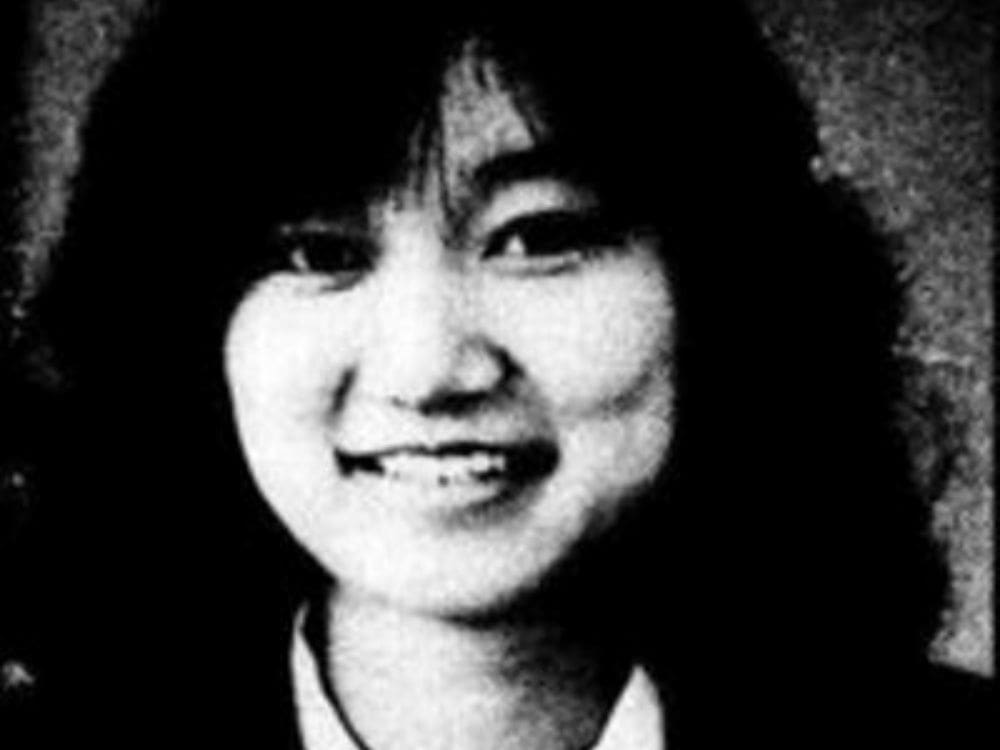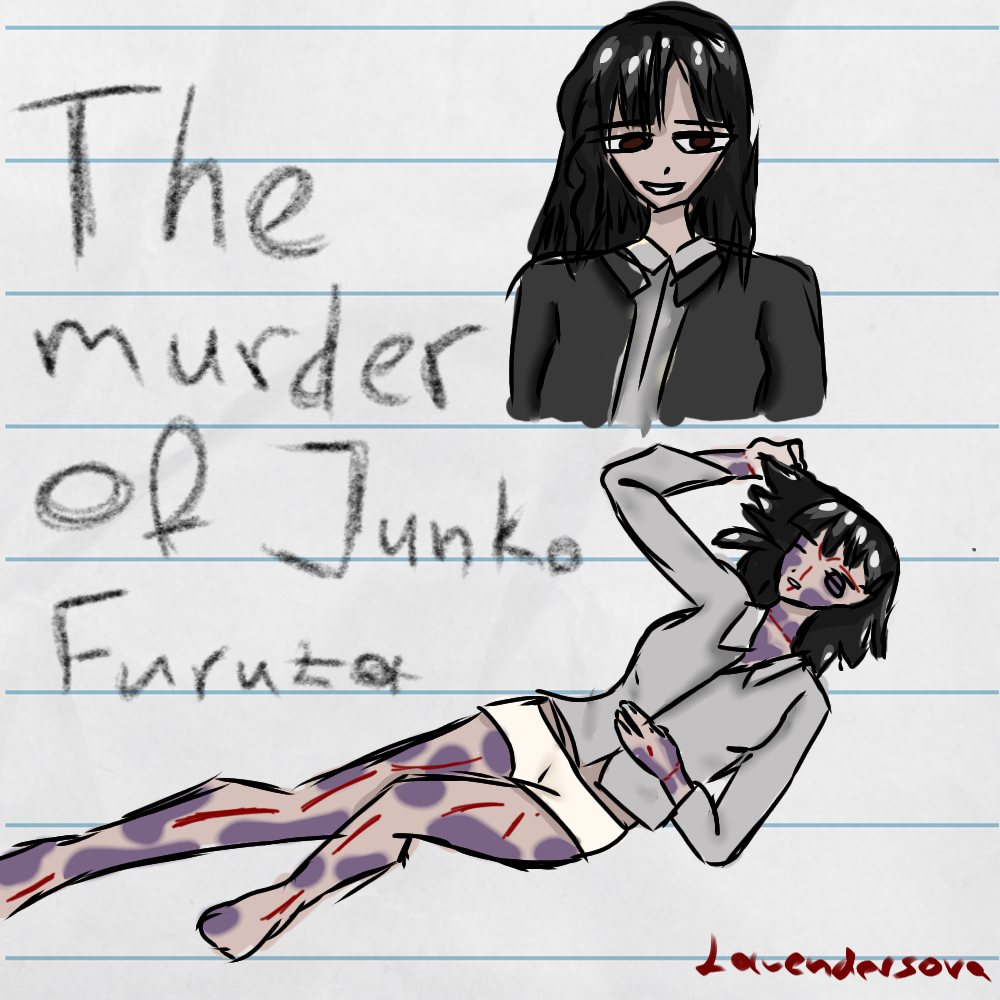It's been decades since the tragic case of Junko Furuta shook Japan to its core, but the story remains one of the darkest chapters in the country's history. Her name still sends shivers down the spine of anyone familiar with the case. The chilling details of what happened to this 14-year-old girl in 1988 are something no one can forget. This is not just a story; it's a reminder of how fragile human life can be and how important it is to seek justice for victims.
Imagine being a 14-year-old girl, full of dreams and hope, only to have your entire life snatched away in the most horrific way possible. That's exactly what happened to Junko Furuta, whose case has been etched into the annals of history as one of the most disturbing crimes ever committed. The events that unfolded over those four long days in December 1988 are something no one should ever have to endure.
This article dives deep into the life and tragic death of Junko Furuta, exploring the events leading up to her capture, the harrowing details of her ordeal, and the lasting impact her case has had on Japan's legal and societal systems. We'll also discuss how this case has influenced modern-day discussions around justice, accountability, and the importance of protecting young people. Buckle up, because this is one story that will leave a lasting impression.
Who Was Junko Furuta?
Before we delve into the harrowing details of the crime, let's take a moment to remember Junko Furuta as more than just a victim. She was a 14-year-old girl with dreams, aspirations, and a life that was cruelly cut short. Junko was a bright student, known for her kindness and charm among her peers. But beyond her youthful innocence, she was also a regular teenager navigating the complexities of adolescence in 1980s Japan.
A Glimpse into Her Life
Junko Furuta was born on February 11, 1974, in the city of Osaka, Japan. She grew up in a loving family and attended school like any other teenager her age. Her friends often described her as someone who lit up a room with her presence, someone who was always ready to lend a helping hand. Junko was passionate about art and music, and she had dreams of becoming an artist one day.
Here’s a quick breakdown of her personal details:
| Full Name | Junko Furuta |
|---|---|
| Date of Birth | February 11, 1974 |
| Place of Birth | Osaka, Japan |
| Occupation | Student |
| Hobbies | Art, Music, Reading |
The Tragic Events of December 1988
On December 1, 1988, Junko Furuta's life took a drastic turn. After attending a classmate's birthday party, she was lured into a car by four teenage boys who claimed they needed her help with a school project. What started as an innocent request quickly turned into a nightmare. Instead of taking her home, the boys drove her to an abandoned house where she would spend the next four days enduring unimaginable horrors.
What Happened Next?
During those four days, Junko was subjected to unspeakable acts of violence and abuse. The four boys, all aged between 14 and 16, took turns torturing her both physically and emotionally. They filmed her suffering, taunted her, and even forced her to call her parents to demand a ransom. Despite the ransom being paid, the boys showed no mercy. On December 4, 1988, Junko Furuta was brutally murdered, and her body was dumped in a river.
Let’s break down the key events:
- December 1: Junko is abducted from a birthday party.
- December 2-3: She is held captive and tortured in an abandoned house.
- December 4: Junko is murdered, and her body is disposed of in a river.
Why Did This Case Shock Japan?
The case of Junko Furuta sent shockwaves through Japan for several reasons. First and foremost, the sheer brutality of the crime was unprecedented. The fact that four teenagers could commit such a heinous act was something no one could have imagined. Second, the legal system's handling of the case raised serious questions about Japan's juvenile justice system. At the time, Japanese law treated minors aged 14-16 as juveniles, meaning they could not be tried as adults. This loophole allowed the perpetrators to avoid the full weight of the law.
Key Issues Raised by the Case
Here are some of the key issues that emerged from the case:
- Juvenile Justice System: The case highlighted the flaws in Japan's juvenile justice system, sparking debates about whether minors should be tried as adults for serious crimes.
- Social Responsibility: Many questioned the role of society in raising children who could commit such atrocities. Was it a failure of the education system, parenting, or both?
- Media Coverage: The media played a crucial role in bringing the case to national attention, but some criticized the sensationalism that surrounded the coverage.
How Did the Perpetrators Escape Justice?
One of the most controversial aspects of the Junko Furuta case is how the perpetrators managed to escape full accountability for their actions. Under Japanese law at the time, minors aged 14-16 were treated as juveniles, meaning they could not be sentenced to death or life imprisonment. Instead, the four boys were given sentences ranging from five to seven years in juvenile detention centers. This leniency sparked outrage among the public, who felt that justice had not been served.
What Happened to the Perpetrators?
Here’s a brief update on the four boys involved in the crime:
- Two of the boys were released after serving their sentences and have since faded into obscurity.
- One of the boys, known as "Suspect A," reportedly struggled with mental health issues and substance abuse after his release.
- The fourth boy, known as "Suspect B," was later involved in another crime and sentenced to prison as an adult.
The Impact on Japan's Legal System
The case of Junko Furuta had a profound impact on Japan's legal system. In the years following the crime, lawmakers began to reevaluate the juvenile justice system and its ability to handle serious crimes committed by minors. While the law was not changed immediately, the case served as a catalyst for future reforms. In 2001, Japan lowered the age of criminal responsibility from 16 to 14, allowing younger offenders to be tried as adults in certain cases.
Key Reforms Inspired by the Case
- Lowering the age of criminal responsibility to 14.
- Increased transparency in juvenile court proceedings.
- Stricter penalties for violent crimes committed by minors.
Remembering Junko: A Legacy of Justice
While the case of Junko Furuta is undeniably tragic, it has also become a symbol of the fight for justice and accountability. Her story serves as a reminder of the importance of protecting young people and ensuring that those who commit heinous crimes face appropriate consequences. Junko's legacy lives on in the changes made to Japan's legal system and in the hearts of those who continue to advocate for justice.
How Can We Honor Junko's Memory?
There are several ways we can honor Junko Furuta's memory and ensure that her story continues to inspire change:
- Support organizations working to protect children and prevent abuse.
- Advocate for legal reforms that ensure justice for victims of violent crimes.
- Remember her as more than just a victim – celebrate her life, dreams, and aspirations.
Lessons Learned from the Junko Furuta Case
The case of Junko Furuta teaches us several valuable lessons about justice, accountability, and the importance of protecting young people. It highlights the need for a legal system that is both fair and effective, capable of handling even the most heinous crimes. It also underscores the importance of addressing the root causes of violent behavior in young people, whether through education, parenting, or community support.
Key Takeaways
- Justice must be served fairly and transparently, regardless of age.
- Preventing violence requires a multifaceted approach involving education, parenting, and community involvement.
- Remembering victims like Junko Furuta is essential to ensuring that their stories continue to inspire change.
Conclusion: Justice for Junko Furuta
In conclusion, the case of Junko Furuta remains one of the most disturbing and impactful stories in modern Japanese history. Her tragic death exposed flaws in the legal system, sparked debates about juvenile justice, and ultimately led to meaningful reforms. While no amount of reform can bring Junko back, her legacy continues to inspire change and remind us of the importance of protecting young people.
I urge you to share this story, discuss it with others, and continue advocating for justice and accountability. Together, we can ensure that Junko's memory lives on and that her story continues to inspire positive change. Leave a comment below and let me know your thoughts on this case and its lasting impact.
Table of Contents


